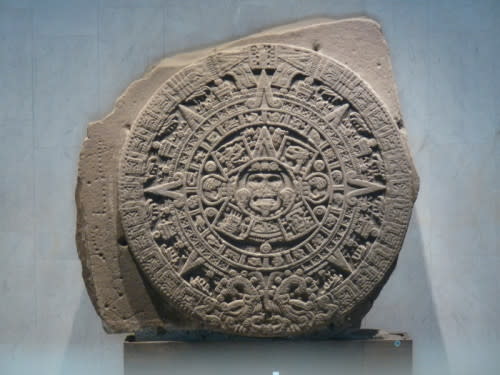Recent study reveals how Aztecs accurately tracked seasons

In the 1400s and 1500s, Mexico's agricultural system fed around 3 million people in the area now known as Mexico City.
Despite not having clocks, computers, satellites, or any of the modern technologies we use to measure time, ancient Mexican farmers successfully grew crops in a climate that had dry springs followed by summer monsoons.
That means they had an in-depth understanding of seasonal variations because planting too early or too late would have decimated crops.
So how did they maintain a precise farming calender that accurately tracked seasons and leap years?
A new study out of UC Riverside finds they used the mountains of the Basin of Mexico's agricultural system as a solar observatory, noting when the sunrise hit the mountain peaks.
SEE ALSO: Massive, ancient cave went undetected in Canada for hundreds of years
Researchers concluded they must have stood in a single spot looking eastward each day to tell the time of year by observing the rising sun.
"Our hypothesis is that they used the whole Valley of Mexico. Their working instrument was the Basin itself. When the sun rose at a landmark point behind the Sierras, they knew it was time to start planting," Exequiel Ezcurra, distinguished UCR professor of ecology who led the research, said in a statement.
To find that spot, they studied Mexica manuscripts, explored the high mountains around the basin and used astronomical computer models -- and found a long causeway structure that aligns with the rising sun on February 24 - the first day of the Aztec new year.

Monolith of the Stone of the Sun, also named Aztec calendar stone (National Museum of Anthropology and History, Mexico City/Wikipedia) CC BY-SA 3.0.
Researchers say this could be the first study to demonstrate how this ancient civilization could track time using nothing but the sun and a understanding of nature.

